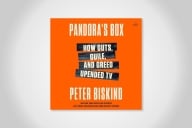You have /5 articles left.
Sign up for a free account or log in.
The reasons to be skeptical of educational technologies are the same reasons to be skeptical of any technological solution.
Often, they just don’t work.
The examples of crappy technologies - or at least technologies that seem to make life worse not better - are all around us.
Here is a partial list instances where technology has made life worse, or where technologies have failed to evolve into something that is more useful, robust, and dependable:
#1 - Electronic Medical Records:
If you think that technology has been bad for higher ed, you might feel better if you spent some time in healthcare. The electronic medical record (EMR) has been an unmitigated disaster in medicine.
The EMR has completely failed to live up to its promise of better health through data collection and mining, and instead has been used as a tool to increase billing. The EMR has turned doctors into the world’s most highly trained data-entry clerks.
#2 - Self-Service Checkout Kiosks:
I’ll admit that I’m sort of excited about the Amazon Go experiment. How cool would it be to be able to walk into a store, pick what you need, and then leave without paying a cashier.
My excitement about Amazon Go is balanced by my actual experience with any resembling self-service kiosks. They just never seem to work. Something always goes wrong. The light always goes off - and then I’m stuck waiting for an employee to unstick the system. Inevitably, someone in a self-checkout line will have a problem. It always seems to take longer to do self-checkout than it does to wait in line for a cashier.
#3 - Conference Venue A/V Systems:
I give lots of talks. I’m constantly plugging my MacBook Air into the A/V system at hotel and convention conference venues. All too often, something goes wrong.
How is it in 2018 that the whole A/V thing has not been figured out? Why haven’t the video and audio connections between laptops and projectors become standardized? How is it that presentation videos so often fail? That Powerpoints look wonky when displayed? That technical failures amongst presenters happen so often as to not surprise anyone in the audience?
#4 - Printers and Photocopiers:
Printer and photocopy technological advancement seems to have stopped somewhere in the 1980s. Specialists with insider secret knowledge are still necessary to get your computer on the network printer. Printer ink still runs out ridiculously fast and at precisely when you need paper copies most. Printer ink is more expensive than liquified gold.
Photocopiers have all the problems of printers, with more paper jams. Things get worse when the photocopier and the printer (and the scanner) are all one device.
#5 - Hotel Alarm Clocks:
How confident are you in your ability to set that hotel alarm clock? Are you willing to trust the hotel alarm clock to get you up for your conference, meetings, and flight?
Probably not. You set an alarm with your phone. Maybe you ask for a wake-up-call from the automated wake-up-call system (which may or may not work). Hotel alarm clocks have become too complicated for normal people, much less someone with a PhD, to figure out.
#6 - Digital Picture Frames:
How is that we have not all switched by now to digital picture frames? We are still printing photos on paper and putting them in frames. Our cameras may be our phones, but we still look at our favorite photos on paper.
Maybe the digital picture frame market is too small for Apple?
#7 - Microsoft Office:
Dear Satya Nadella. Please start fresh with Office. Clean sheet. Blank page.
Office is 30 years old. Word, PowerPoint, Excel, and Outlook (the programs I use) have evolved into overly-complicated messes. They have too many features. They don’t do what I want them to do as collaboration tools. Google Docs is a better choice for almost any collaborative writing project. Time to start over.
#8 - Car Radios:
Car radios are one of those examples where everything is going in the wrong direction. Automakers seem to be in love with the idea of replacing buttons and knobs with touch screens. The problem is that you can’t do anything with a touch screen without looking at it. There is no tactile feedback. For a car radio, you want to be able to change the station or adjust the volume by feel.
The scourge of touch screens in new cars goes far beyond the radio. The all touch screen user control interfaces on the new Tesla 3 seem like the height of lunacy. Someone at Tesla should have stood up to Elon Musk.
#9 - Web Meetings:
I’m a big fan of the idea of web meetings. When they work, they work great. Web meetings break the tyranny of distance. They enable us to work from anywhere.
The problem is that the technology that makes web meetings possible will often fail. The sound will not work. Participants will hear others, but nobody can hear them. Or vice versa. The webcam will fail to start.
If I was going to start a new web meeting company, or improve an existing platform, I’d put all my energy into making sure that sound and video works. Forget any new features. Focus only on bullet proof audio and video.
#10 - Single-Serve Coffee Pods:
At home I have a K-Cup machine. Same at work. These single-serving coffee makers are easy. Convenient.
The only problem is that the coffee almost always tastes terrible, each cup is an order of magnitude more expensive than ground coffee, and the pods are horrible for the environment. So what’s not to like?
We trade so much for convenience that we lose sight of value.
If the relatively simple tasks that we ask these technologies to accomplish are so poorly met, how can we expect technology to work well in something as complicated as education?
Learning is the hardest and most important thing that humans do. Educators are the world’s most important people. When it comes to education, we will never succeed in replacing people with technology.
What would you add to this list of crappy technologies? (Facebook? Clickers? Learning Management Systems? Phone calls on the iPhone?)
What are your least favorite technologies?








